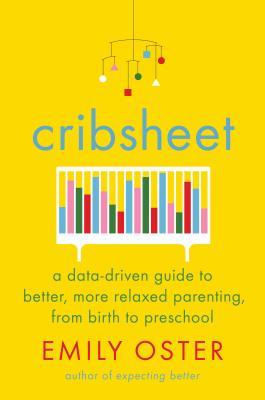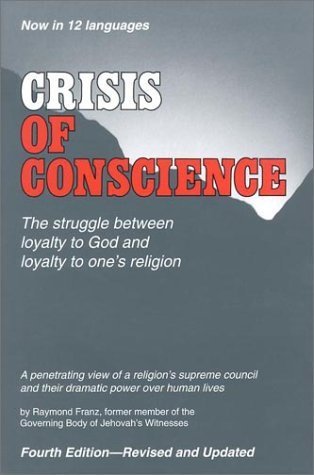
Cribsheet: A Data-Driven Guide to Better, More Relaxed Parenting, from Birth to Preschool
by Emily Oster
30 popular highlights from this book
Key Insights & Memorable Quotes
Below are the most popular and impactful highlights and quotes from Cribsheet: A Data-Driven Guide to Better, More Relaxed Parenting, from Birth to Preschool:
“So let’s start by just framing this not as “What kind of mom will you be?” but “What is the optimal configuration of adult work hours for your household?” Less catchy, yes, but also perhaps more helpful for decision-making.”
“First, recognize that children are not adults, and you usually cannot improve their behavior with a discussion. If your four-year-old is taking their shirt off in the museum, they will not respond to a reasoned discussion about how you actually do need to wear a shirt in public places. The flip side of this - more important - is that you shouldn't expect them to respond to adult reasoning. And as a result, you should not get angry the way you would if, say, your spouse was stripping in the museum and didn't stop after you explained why they shouldn't.Toddler discipline is, really, parental discipline. Breathe. Take a second.”
“But the world is oddly lacking in discussions of what happens, physically, to Mom after the baby arrives. Before the baby, you’re a vessel to be cherished and protected. After the baby, you’re a lactation-oriented baby accessory.”
“I’ll say it: I am lucky enough to not have to work, in the sense that Jesse and I could change how we organize our life to live on one income. I work because I like to. I love my kids! They are amazing. But I wouldn’t be happy staying home with them. I’ve figured out that my happiness-maximizing allocation is something like eight hours of work and three hours of kids a day. It isn’t that I like my job more than my kids overall—if I had to pick, the kids would win every time. But the “marginal value” of time with my kids declines fast. In part, this is because kids are exhausting. The first hour with them is amazing, the second less good, and by hour four I’m ready for a glass of wine or, even better, some time with my research. My job doesn’t have this feature. Yes, the eighth hour is less fun than the seventh, but the highs are not as high and the lows are not as low. The physical and emotional challenges of work pale in comparison to the physical and emotional challenges of being an on-scene parent. The eighth hour at my job is better than the fifth hour with the kids on a typical day. And that is why I have a job. Because I like it. It should be okay to say this. Just like it should be okay to say that you stay home with your kids because that is what you want to do. I’m well aware that many people don’t want to be an economist for eight hours a day. We shouldn’t have to say we’re staying home for children’s optimal development, or at least, that shouldn’t be the only factor in the decision. “This is the lifestyle I prefer” or “This is what works for my family” are both okay reasons to make choices! So before you even get into reading what the evidence says is “best” for your child or thinking about the family budget, you—and your partner, or any other caregiving adults in the house—should think about what you would really like to do.”
“Swaddling has been shown to reduce crying and improve sleep. It is important to swaddle in a way that allows the baby to move its legs and hips. Colic is defined as excessive crying. It is self-limiting, meaning it will stop eventually. Changing formula or maternal diet, treatment with a probiotic, or both have shown some positive impacts. Collecting data on your baby is fun! But not necessary or especially useful. Exposing your infant to germs early on risks their getting sick, and the interventions for a feverish infant are aggressive and typically include a spinal tap. Limiting germ exposure may be a good idea, even if just to avoid these interventions.”
“These books, which cover many of the topics discussed in this book, may be helpful further reading. GENERAL REFERENCE American Academy of Pediatrics. Caring for Your Baby and Young Child: Birth to Age Five. New York: Bantam, 2004. Druckerman, P. Bringing Up Bébé: One American Mother Discovers the Wisdom of French Parenting. New York: Penguin, 2014. Eliot, L. What’s Going On in There?: How the Brain and Mind Develop in the First Five Years of Life. New York: Bantam, 2000. Nathanson, L. The Portable Pediatrician for Parents: A Month-by-Month Guide to Your Child’s Physical and Behavioral Development from Birth to Age Five. New York: HarperCollins, 1994. DISCIPLINE Phelan, T. W. 1-2-3 Magic: Effective Discipline for Children 2–12. Naperville, IL: ParentMagic, Inc., 2010. Webster-Stratton, C. The Incredible Years: A Trouble-Shooting Guide for Parents of Children Aged 2–8. Toronto: Umbrella Press, 1992. SLEEP Ferber, R. Solve Your Child’s Sleep Problems. Rev. ed. New York: Simon & Schuster, 2006. Karp, H. The Happiest Baby on the Block: The New Way to Calm Crying and Help Your Newborn Baby Sleep Longer. Rev. ed. New York: Bantam, 2015. Weissbluth, M. Healthy Sleep Habits, Happy Child: A Step-by-Step Program for a Good Night’s Sleep. 4th ed. New York: Ballantine Books, 2015. POTTY TRAINING Glowacki, J. Oh Crap! Potty Training: Everything Modern Parents Need to Know to Do It Once and Do It Right. New York: Touchstone, 2015.”
“It isn't that I like my job more than my kids overall --if I had to pick, the kids would win every time. But the "marginal value" of time with my kids declines fast. In part, this is because kids are exhausting. The first hour with them is amazing, the second less good, and by hour four I'm ready for a glass of wine or, even better, some time with my research.My job doesn't have this feature. Yes, the eighth hour is less fun than the seventh, but the highs are not as high and the lows are not as low. The physical and emotional challenges of work pale in comparison to the physical and emotional challenges of being an on-scene parent. The eighth hour at my job is better than the fifth hour with the kids on a typical day. And that is why I have a job. Because I like it.”
“always especially good evidence.”
“The physical and emotional challenges of work pale in comparison to the physical and emotional challenges of being an on-scene parent.”
“relationship between breastfeeding and education, income, and other variables is a problem for research. Having more education and more resources is linked to better outcomes for infants and children, even independent of breastfeeding.”
“year, most of them between September and April.7 This works out to about one a month. These colds last on average fourteen days.8 A month is thirty days. So in the winter, on average, your kid will have a cold 50 percent of the time. On top of this, most kids end their cold with a cough that can last additional weeks. It adds up.”
“In particular, researchers have found that the benefits are bigger with more interactive reading.6 Rather than just reading a book, kids benefit from being asked open-ended questions: “Where do you think the bird’s mother is?” “Do you think it hurts Pop when the kids hop on him?” “How do you think the Cat in the Hat is feeling now?”
“One of the best pieces of parenting advice I got from my friend Nancy was this: Regardless of what childcare you choose, have a plan for who is in charge when the nanny or the kid is sick. Fighting about who will miss work in the moment is a bad idea.”
“We know being a parent means getting a lot of advice, but this advice is almost never accompanied by an explanation of why something is true or not, or to what degree we can even know it’s true. And by not explaining why, we remove people’s ability to think about these choices for themselves, with their own preferences playing a role. Parents are people, too, and they deserve better.”
“exposed outlets, cords, fans, etc. Safe cribs Written emergency plan Disposable towels available Eating area away from diaper area Toys washed each day Teacher knows about infant illnesses Fun Toys can be reached by kids Floor space available for crawlers to play 3 different types of “large-muscle materials” available (balls, rocking horse) 3 types of music materials available “Special activities” (i.e., water play, sponge painting) 3 materials for outdoor infant play Individualization Kid has own crib Each infant is assigned to one of the teachers Child development is assessed formally at least every 6 months Infants offered toys appropriate for their development level Teachers have at least 1 hour a week for team planning”
“The bottom line from this literature is that these parental-leave extensions have no effect on child outcomes.1 No effects on children’s test scores in school, on income later in life, or on anything else. In many cases, these studies have very long follow-up periods. We can say, for example, that one year of parental leave versus two years doesn’t influence a child’s high school test scores or earnings in early adulthood.”
“If I choose not to breastfeed, I don’t want to acknowledge that there are even small possible benefits to breastfeeding. So I encamp myself in the position that breastfeeding is a waste of time. On the other side, if I spend two years taking my boobs out every three hours, I need to believe that this is what it takes to deliver a life of continued successes to my child. This is a deeply human temptation, but it is also really counterproductive. Your choices can be right for you but also not necessarily the best choices for other people. Why? You are not other people. Your circumstances differ. Your preferences differ. In the language of economics, your constraints differ.”
“Perhaps because of this total uncertainty about what’s going on (which, luckily, mostly lessens with later children), small concerns can totally take over. You are very tired, and you are now facing a challenge unlike any you have ever known. So cut yourself some slack if things get a little absurd.”
“A 2006 review covered nineteen studies of the unfortunately named “Extinction” method—the form of “cry it out” in which you leave and do not return—of which seventeen showed improvements in sleep.3 Another fourteen studies used “Graduated Extinction”—where you come in to check on the baby at increasingly lengthy intervals—and all showed improvements. A smaller number of studies covered “Extinction with Parental Presence”—in which you stay in the room but let the child cry—and these also showed positive effects. These effects persist through six months or a year in studies that can look this far out. This means that children who are sleep trained are sleeping better (on average) even a year after the training.”
“Putting this together leads to some general advice: offer your very young child a wide variety of foods, and keep offering them even if the child rejects them at first. As they get a little older, do not freak out if they don’t eat as much as you expect, and keep offering them new and varied foods. If they won’t eat the new foods, don’t replace the foods with something else that they do like or will eat. And don’t use threats or rewards to coerce them to eat.”
“Second, studies tend to find that the impacts of both parents working are positive (i.e., working is better) for kids from poorer families, and less positive (or even slightly negative) for children from richer families.”
“Kids younger than school age get an average of six to eight colds a year, most of them between September and April.7 This works out to about one a month. These colds last on average fourteen days.8 A month is thirty days. So in the winter, on average, your kid will have a cold 50 percent of the time. On top of this, most kids end their cold with a cough that can last additional weeks. It adds up.”
“One thing that is commonly seen is that children in families where one parent works part time and the other works full time tend to perform best in school—better than children whose parents both work full time or who have one parent who doesn’t work at all.3 This could be due to the working configuration, but I think it’s more likely due to differences between these families.4”
“The Portable Pediatrician for Parents by Laura Nathanson.”
“Your choices can be right for you but also not necessarily the best choices for other people. Why? You are not other people. Your circumstances differ. Your preferences differ. In the language of economics, your constraints differ. When”
“parenting matters. Much more consistent than any of the associations in these studies is the association between parenting and child outcomes. Having books in your house and reading them to your kid is going to matter much more than what books they have at day care. This seems to be true even though your child probably spends as many waking hours with their care providers as with you. I don’t think we know precisely why this is the case, although it may be that you as the parent are the most consistent influence your child has. Second, childcare quality matters much more than which type of childcare you have. A high-quality day care is likely to be better than a low-quality nanny, and vice versa.”
“If you want to collect data and make pretty graphs, go for it. But remember that this is the illusion of control, not actual control.”
“This idea—that what parents need or want will play a role in choices—can be hard to admit. In a sense, I think this is at the core of a lot of the “Mommy War” conflicts. We all want to be good parents. We want our choices to be the right ones. So, after we make the choices, there is a temptation to decide they are the perfect ones. Psychology has a name for this: avoiding cognitive dissonance. If I choose not to breastfeed, I don’t want to acknowledge that there are even small possible benefits to breastfeeding. So I encamp myself in the position that breastfeeding is a waste of time. On the other side, if I spend two years taking my boobs out every three hours, I need to believe that this is what it takes to deliver a life of continued successes to my child. This is a deeply human temptation, but it is also really counterproductive. Your choices can be right for you but also not necessarily the best choices for other people. Why? You are not other people. Your circumstances differ. Your preferences differ. In the language of economics, your constraints differ.”
“For some women, breastfeeding makes them feel empowered and happy. It’s convenient to have a ready food source anywhere they go, and they find nursing their baby to be a peaceful and relaxing time. That’s great! For others, breastfeeding makes them feel like a cow. They hate lugging the breast pump around if they have to pump. It’s hard to tell if the baby even likes to nurse or is getting enough food. Their nipples hurt, and the experience basically sucks.”
“Not so with a toddler. “Time for socks and shoes!” you say, eleven minutes before you need to leave the house. “NO! I don’t WANT socks! I don’t WANT them.” Foot stamping, face scrunched up. Arms may be folded in anger pose.”


